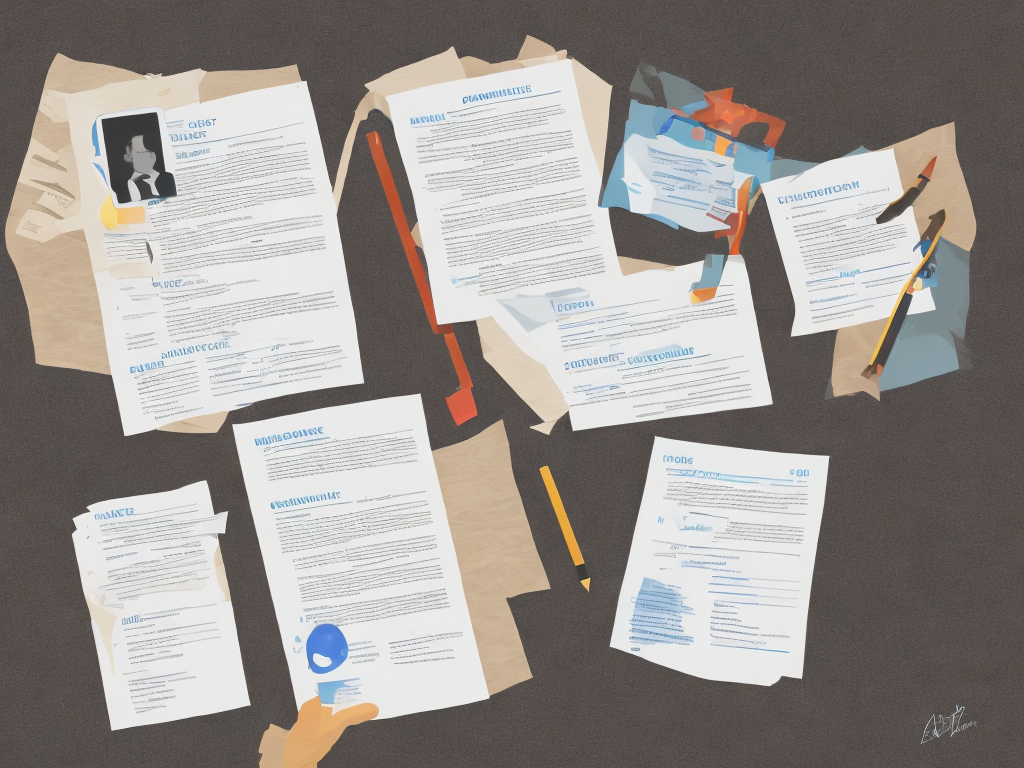
In the modern working world, the terms resume and CV are often used interchangeably, but they actually refer to two different documents that serve different purposes. Understanding the difference between the two is important when applying for jobs or academic programs.
What is a Resume?
A resume is a one or two page document that summarizes your professional experience, skills, and achievements. Its purpose is to provide an overview of your qualifications that a potential employer can quickly scan to determine if you are a good fit for the position they are trying to fill.
Resumes are typically tailored to the job being applied for and should highlight the skills and experiences that are most relevant to the position. They are usually easy to skim and should be no more than one or two pages in length. A good resume should be concise but informative and should showcase your skills and achievements in a way that captures the employer's attention.
What is a CV?
A CV, short for Curriculum Vitae, is a more comprehensive document that provides a detailed overview of your academic and professional qualifications. Unlike a resume, a CV is not tailored to a specific job and is instead a comprehensive record of your experience. A CV can be many pages long and contains detailed information on your education, work experience, publications, research projects, and other relevant achievements.
CVs are typically used when applying for academic positions, research roles, or grants/fellowships. They are designed to give a complete understanding of your qualifications and expertise, providing a detailed record of your work history, academic achievements, and publications.
While CVs don't need to be tailored to specific job postings, they should be regularly updated to reflect new achievements, publications, or work experience. This is important to ensure that potential employers or academic institutions can see your career progress and track your accomplishments.
The Main Differences Between a Resume And CV
The main differences between a resume and a CV are their length, format, and purpose. Resumes are shorter, usually no more than two pages, and are intended to provide a brief overview of your qualifications for a specific job. CVs, on the other hand, are longer and provide a comprehensive record of your academic and professional achievements.
Another important factor that sets resumes apart from CVs is their level of customization. Resumes need to be tailored to the specific job posting, highlighting the skills and experiences that are most relevant for the position. CVs, on the other hand, are not tailored to a specific job and will contain information on your entire career trajectory.
The formatting of a resume is different from a CV as well. Most resumes should be easy to skim, with bolded headings and bullet-pointed lists that help organize the information. CVs, on the other hand, use a more academic-style format, typically presenting information in chronological order and with detailed descriptions of each work experience or academic achievement.
Which One Should You Use?
The document that you should use will depend on the context and the job you are applying for. Resumes are ideal for job applicants who are seeking jobs in the private sector, particularly those who are applying for positions in the business world, where quick decisions are usually made. CVs, on the other hand, are more geared towards academic applications, research positions, and scientific fields.
However, there are exceptions to this rule. For instance, if you are seeking a job in the creative industry, you might need a resume that showcases your artistic abilities rather than a CV that details your qualifications and experience. Similarly, some technical positions might require CV's to demonstrate specific skills and experience.
It's always a good idea to read the job description carefully before deciding which document to use. If the job posting specifies whether they want a resume or a CV, then make sure you adhere to their guidelines. Failing to follow these guidelines may cause your application to be rejected before it even gets read.
Conclusion
In conclusion, resumes and CVs are two different documents that serve different purposes. Resumes are shorter, tailored to specific job postings, and are usually used to apply for jobs in the business sector. CVs, on the other hand, are more comprehensive and academic-centric, providing a detailed overview of your qualifications and achievements. No matter which one you use, it is essential to keep each document updated and tailored to the job that you are applying for. By understanding these differences between these two documents, job seekers can ensure that they are effectively communicating their qualifications and experience to potential employers.
 Self-Instruct
Self-Instruct